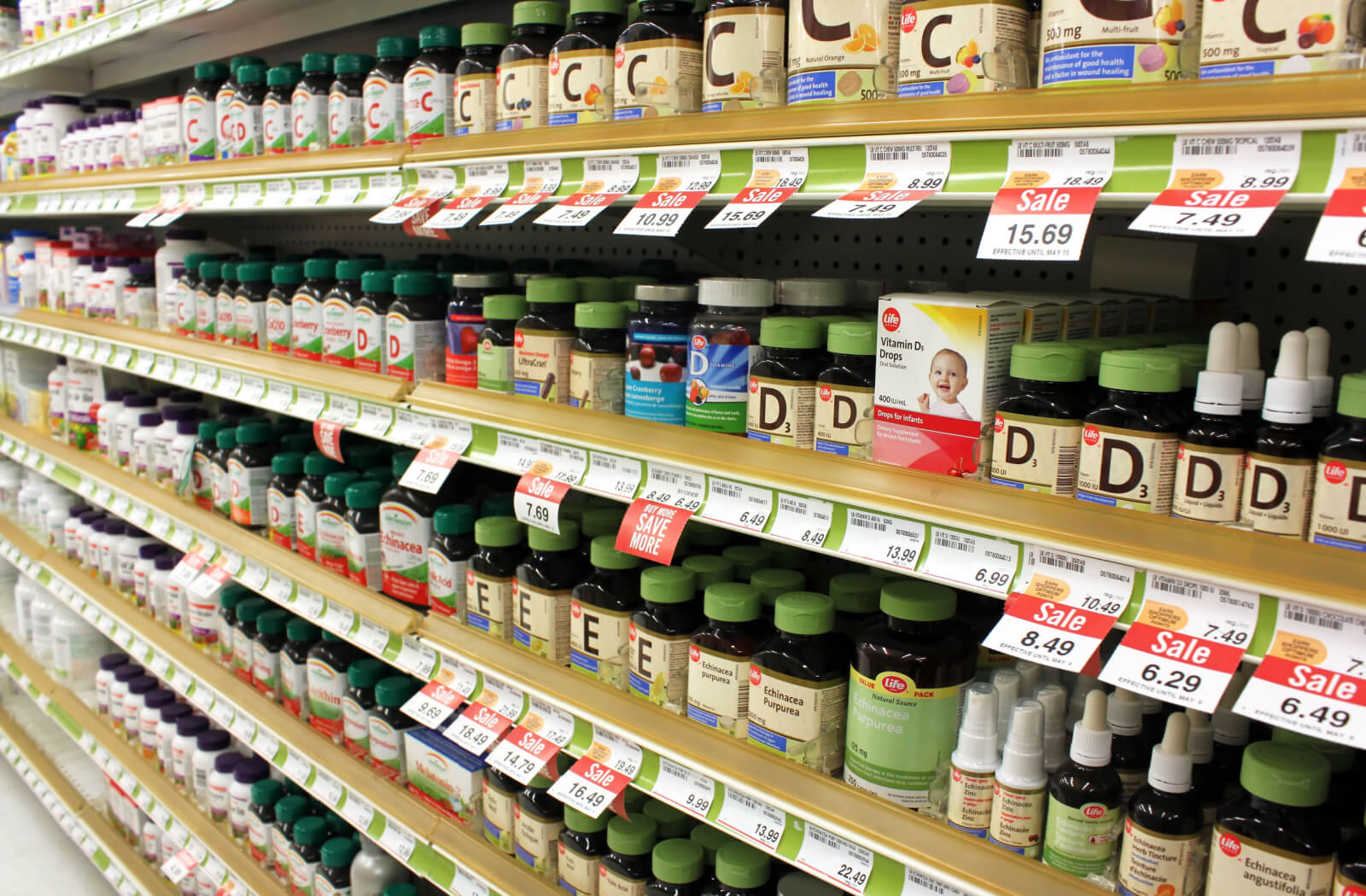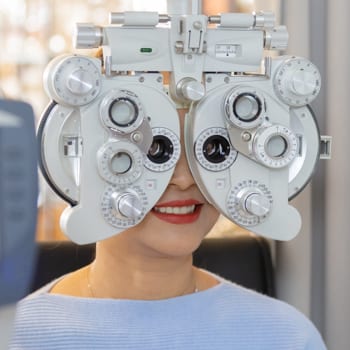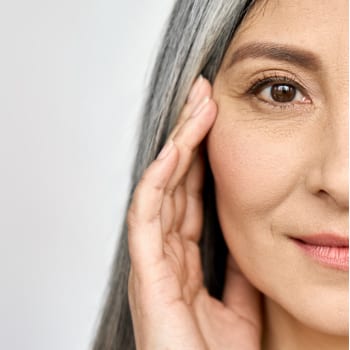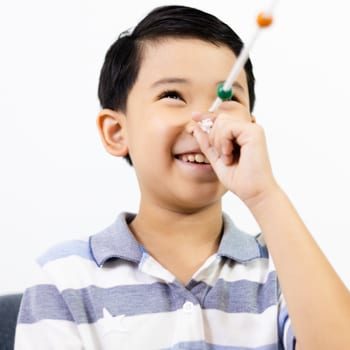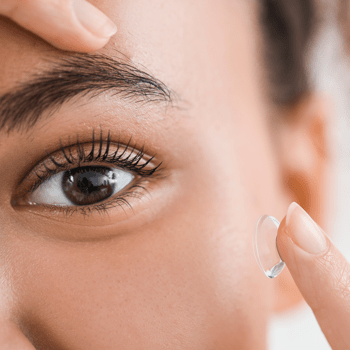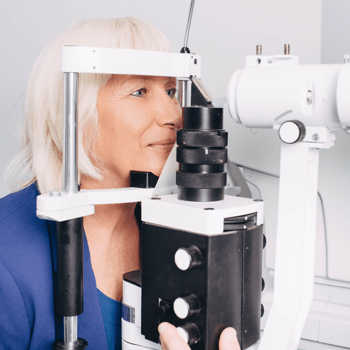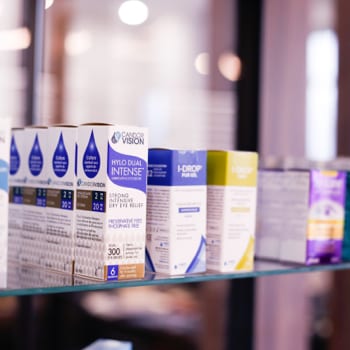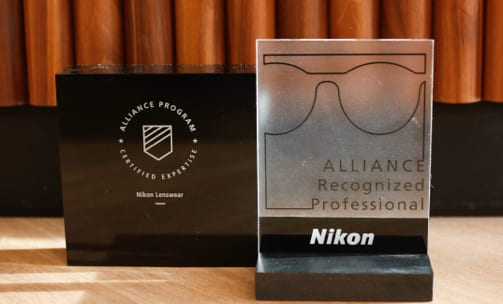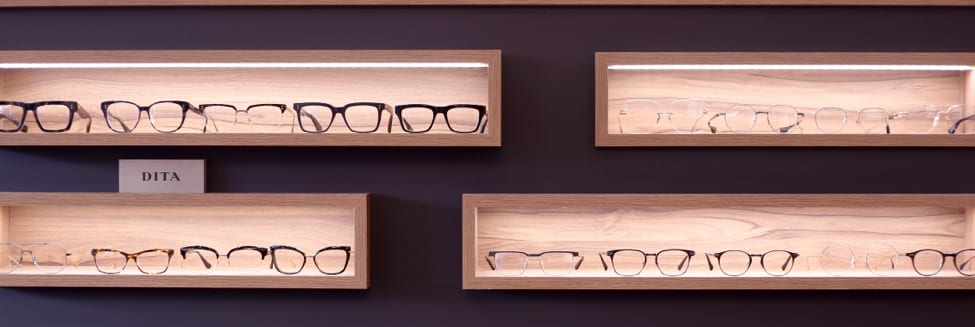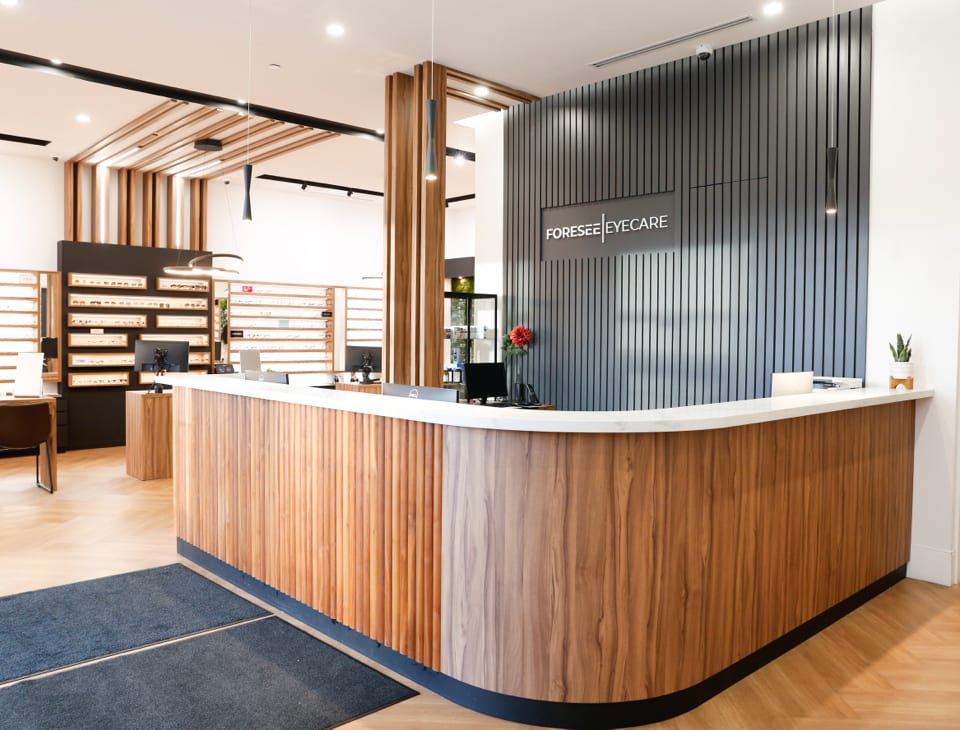Macular degeneration is a common eye condition and the leading cause of vision loss for older adults. Since it can progress at different speeds for different people, it’s crucial to have regular eye exams so your optometrist can track its progression.
There’s no way to reverse macular degeneration. However, nutritional supplements and a diet high in antioxidants, among other healthy lifestyle choices, can help prevent macular degeneration or slow its progression.
What Is Age-Related Macular Degeneration?
Age-related macular degeneration (AMD) is a condition affecting the centre of your retina, an area known as the macula. The retina is a layer of photoreactive cells at the back of your eye that gives you a full range of vision. The macula is responsible for detailed central vision.
2 types of AMD exist: dry and wet.
Dry AMD occurs when the macula gets thinner with age and is the more common form, with 90% of cases of AMD being the dry type. It happens in 3 stages: early, intermediate, and late, and typically progresses over several years. While there’s no treatment for dry AMD, you can take steps to minimize your vision loss.
Wet AMD is a much more severe and fast-acting type of macular degeneration. It happens when the weak blood vessels under the macula suddenly leak. It’s possible for dry AMD to become wet AMD, which can lead to sudden vision loss. Fortunately, there are treatments available for wet AMD, such as injections that shrink leaky blood vessels and prevent the growth of new ones.
The earliest stages of AMD can be symptom-free, but as it progresses, you may be able to notice symptoms such as:
- Blurred central vision (which can increase in size)
- Difficulty seeing in low light
- Trouble reading
- Difficulty recognizing faces
- Colours appear less vivid
- Straight lines appear wavy
Age-Related Eye Disease Study (AREDS)
Like the rest of our bodies, our eyes benefit from a healthy diet and lifestyle. For people already with intermediate dry AMD in 1 or both eyes, special nutritional supplements could help slow its progression.
According to the Age-Related Eye Disease Study (AREDS), taking the following nutritional supplements every day may help people with intermediate AMD lower the risk of it progressing into late AMD by 25%:
- Vitamin C 500 mg
- Vitamin E 400 IU
- Copper 2 mg
- Zinc 80 mg
- Lutein 10 mg
- Zeaxanthin 2 mg
These supplements are not a cure for AMD but can help slow certain forms of the disease. These supplements are only effective for people with intermediate or late AMD and will not prevent you from developing AMD.
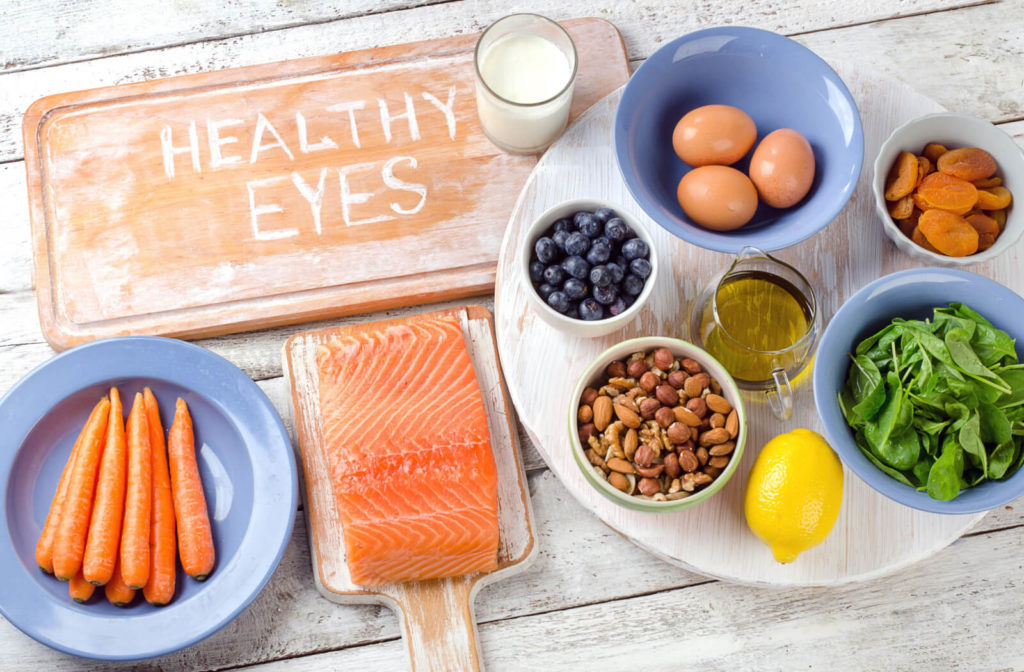
Vitamins for Macular Degeneration
Nutritional supplements alone are not enough to prevent AMD. You should also ensure you eat a nutritious diet full of antioxidants to promote eye vision health. For most people, a healthy diet should offer enough nutrients without additional supplements.
Vitamin A
Vitamin A can help your retina convert light into images while also aiding in dry eye prevention. Some fruits and vegetables that are good sources of vitamin A include:
- Carrots
- Sweet potatoes
- Cantaloupe
- Apricots
Vitamin C
An important antioxidant, Vitamin C helps repair and grow new tissue cells. Studies show antioxidants can prevent or at least delay AMD when part of a healthy diet. Good sources of vitamin C include:
- Citrus fruits (oranges, tangerines, grapefruit, lemons)
- Peaches
- Red bell peppers
- Tomatoes
- Strawberries
Vitamin E
Vitamin E is another antioxidant that, much like vitamin C, helps maintain healthy cells. Foods rich in vitamin E include:
- Avocados
- Almonds
- Sunflower seeds
Lutein and Zeaxanthin
Have you wondered what makes leafy green vegetables so bright? Lutein and zeaxanthin are a pair of antioxidants found in the pigments of brightly coloured foods and are vital in protecting the macula. Good sources of these antioxidants include:
- Kale
- Spinach
- Romaine lettuce
- Collards
- Turnip greens
- Broccoli
- Peas
- Eggs
Zinc
Zinc is an essential mineral that can keep your retina healthy and possibly protect you from light damage. Be cautious, however, as zinc can reduce the amount of copper in your body. Copper is needed to help form red blood cells; fortunately, beans can help you increase both minerals. These include:
- Black-eyed peas
- Kidney beans
- Lima beans
Other good sources of zinc include:
- Oysters
- Lean red meat
- Poultry
- Fortified cereals
Make sure you talk to a health professional before making any significant changes to your diet.
Getting Expert Help
It’s never too late to start eating healthy and ensuring you have the proper vitamins in your diet. You can’t undo macular degeneration, but with appropriate treatment and care, you can slow its progress.
At Foresee Eyecare, we can look for signs of AMD and take you through the steps to control it. Don’t leave your vision up to chance. Book an appointment with us today and keep your eye health on track.

